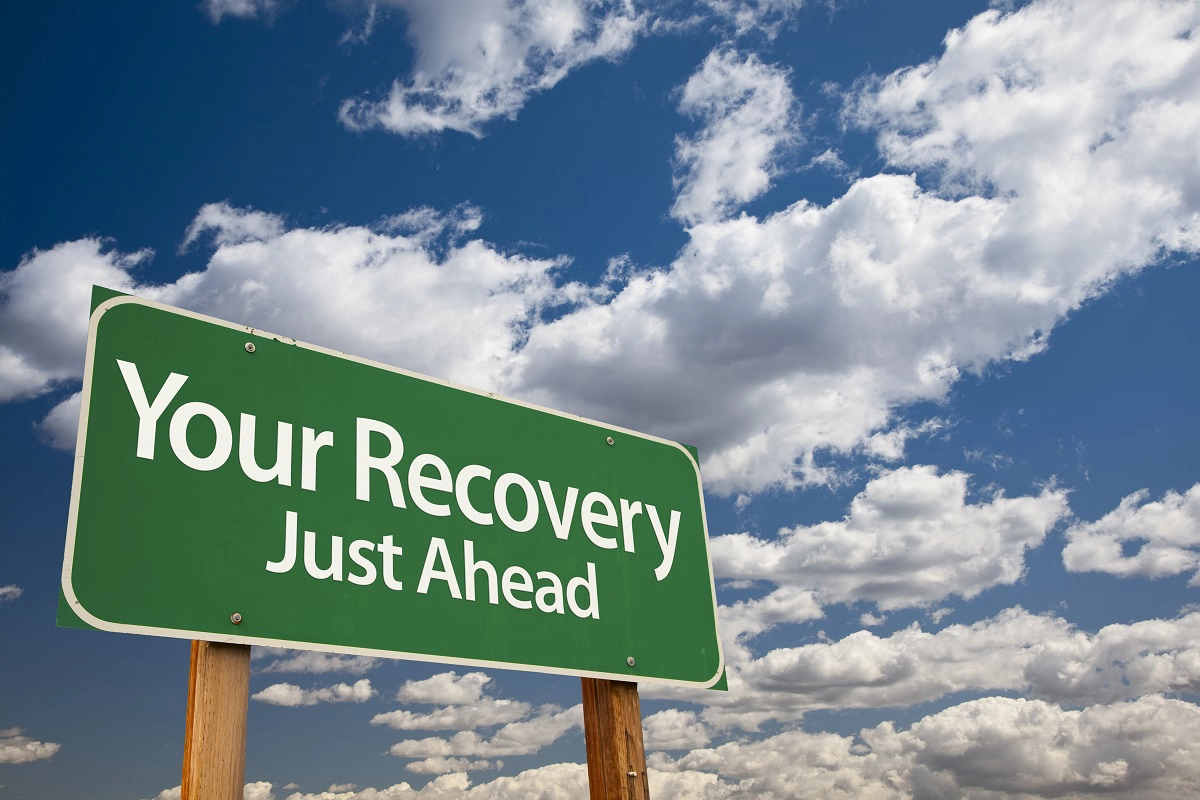Withdrawal symptoms from drugs and other addictions can sometimes be overwhelming, and you feel lost in the heat of it all. First things first, don’t be. You are not alone. The withdrawal process is not as simple as it seems, as there are so many other factors that culminate into the entirety of the concept. There is every possibility that you are unsure of what withdrawal means, or how you can get help in the process.
Various symptoms come with the withdrawal from multiple substances. However, there is one thing common to all of these withdrawals – it is always uncomfortable. In extreme cases, it can even be dangerous to attempt an outright withdrawal. This process can even cause several physical reactions.
Withdrawal as a process refers to the abrupt end of the use of a substance — substances which your brain is used to getting. When the brain is used to the presence of a substance, it is a state referred to as dependence. Suddenly quitting that substance catches your brain off guard and can throw it off balance.
Withdrawal can be tough, but it is an essential procedure that needs to be done if you are ever going to beat addiction. When done correctly, the entire risk is eliminated, and you are on your way to recovery. Quitting drugs and alcohol in Canada can seem pretty tricky, owing to peer pressure and other factors. However, this article provides an in-depth guide into overcoming addiction and getting back on your feet.
What is Drug Withdrawal?
It might be surprising to discover that withdrawal can be defined in two ways. One of which describes that withdrawal exposes an individual to symptoms when he or she stops taking a substance. The process can also lead an individual to keep taking a substance to avoid the occurrence of the symptoms of post-withdrawal.
Understanding the concept of withdrawal involves understanding the way alcohol and drugs affect the brain. The brain, as an entity, is composed of various nerve cells that transmit chemical signals from one to another. Whenever there is an intake of a substance, it influences the chemical signals transmitted between the nerves. Drugs and alcohol affect the chemical composition of the brain.
Following consistent use, the brain adapts to the changes caused by these substances. This leads to dependence. The brain is used to the substance and is expectant of the presence of the chemicals. By suddenly cutting the supply of these substances to the brain, it is caught off guard and leads to uncomfortable situations. These symptoms are known as withdrawal symptoms.
Because the various substances taken cause different chemical changes in the brain, there are multiple symptoms that are dependent on the type of substance you have been taking. In other words, there is no same symptom for all kinds of drug or alcohol withdrawal.
Dependence as a concept is closer in meaning to addiction. Hence, the situation of your brain relying on some chemicals might sometimes be referred to as an addiction. However, in the real sense, we mean dependence. The abrupt stop to the intake of some substances can be dangerous without help. Especially when it comes to alcohol, it can always lead to situations like seizures, hallucinations, and even delirium episodes.
In cases of chronic alcohol addiction or dependence, it can be very lethal to withdraw. In this case, even if the symptoms have been mild, they can suddenly become worse and endanger the life of such a person. Hence, there is a need for a proper guide on your journey to complete a withdrawal. This article is going to serve as a professional guide to completely breaking free from dependence and addiction.
It is essential to note that withdrawal from different substances varies in intensity. The withdrawal from alcohol seems to be most lethal, even more than that of cocaine. Cocaine can lead to very uncomfortable situations. However, it is not as dangerous.
In the case of a pregnant woman, it is more dangerous to indulge in drugs as it will be tough to withdraw. It is also not advisable for a woman who has previously indulged in drugs to suffer withdrawal symptoms during conception suddenly. However, when the child is born, it is better to have the child weaned, to avoid withdrawal symptoms.
Symptoms of Withdrawal from Substance Abuse
The very core of withdrawal symptoms is tied to alcohol and its intake. As said earlier, one of the deadliest forms of dangerous withdrawal is alcohol. As a result of this, there is a need to treat alcohol withdrawal with care, as much as possible. The appearance of a symptom is down to the severity of the use of alcohol. For some, it might just be a few hours after the last drink, while for some, it can go on for as much as a week.
Over time, withdrawal symptoms can result in seizures, and on other occasions, it can result in delirium tremens (DTs). In the case of DTs, the individual is exposed to signs and anomalies like marked confusion, agitation, hallucinations, and violent tremors of both the arms and the legs.
Not all symptoms associated with alcohol withdrawal are severe, and some of the less severe ones include;
- Shakiness
- Increased heart rate
- Increase in body temperature
- High blood pressure
- Anxiety
Other symptoms associated with different substances include:
Benzodiazepines
Alcohol is not the only substance that can disorient a person when withdrawn. Managing withdrawal from substance abuse is broader than you think. Another substance to consider in the case of withdrawal is the Benzodiazepines (Valium and Ativan). These substances, when withdrawn, can pose life-threatening withdrawal syndrome. These syndromes are similar to that of alcohol.
The significant difference between alcohol and these substances, when it comes to managing withdrawal from substance abuse, is the duration involved. Valium and Ativan take a longer time for the symptoms to show. This can take between a week and a month.
These substances are mainly used in the case of anxiety. Hence, withdrawal from them would cause an increase in the stress an individual is exposed to. Other substances in the Benzodiazepine class when withdrawn, can lead to a rise in blood pressure level, as well as an increase in heart rate. There are also cases of delirium, hallucinations, and even seizures.
Opiate
With regard to an opiate, when it comes to managing withdrawal from opiate abuse in Canada, it sure is going to be uncomfortable. However comfortable it might be, it is not as much as that of alcohol and benzodiazepines, in terms of risk. The symptoms that withdrawers are liable to experience include;
- Chills and sweats
- Sleeplessness
- Fever
- Runny nose
- Nausea and vomiting
- Muscle aches or cramps
Stimulants
Various stimulants can pose issues during the process of withdrawal, and they include; cocaine, amphetamines, methamphetamine, or other medications. These medications can consist of, Methylphenidate, or Ritalin. Withdrawal from these substances can take about one or two weeks.
With regards to these stimulants, symptoms originating from the process of managing withdrawal from stimulants, is most often not physical. Physically, these people are okay and are just like any other person without involvement in drugs. They can be quite moody, sleepy, and just as hungry, all because they are just recovering. However, these persons have been found to suffer emotionally.
It is effortless for these sets of persons to be very depressed. Also, they are at risk of committing suicide in the long run. For people suffering from stimulant addiction, withdrawal needs to be done more carefully.
Related article: What is Fentanyl Abuse and Why is it Dangerous?
How to Manage Withdrawal
Managing withdrawal from substance abuse can be somewhat tasking. As a statement of fact, if not properly managed, it can do a lot of damage. In the life of a dependent person, or an addict, the period of management is a critical one, and the processes should be carried out duly.
There are two core processes involved, which include preparing for withdrawal and actually managing the situation. These processes might sound simple, but there is more to them than meets the eye. Why don’t we explore these situations?
Preparing for Withdrawal
It has been established that the significant point behind withdrawal is the symptoms that come with it. This is all that matters. The very first thing to do in the case of withdrawal is to have hands-on knowledge of what the various symptoms are. Only then can one progress to the processes and tricks that will help you prepare for withdrawal.
It is possible for you as an individual to prepare for withdrawal, and in most cases, it will most likely help you to reduce the severity of the symptoms. Here are some ways through which you can prepare for withdrawal;
Talk to a physician
You might not fully know what to expect from your level of dependence on a particular substance. Hence, you must talk to a physician. By talking to an expert physician, you get hands-on knowledge of what you need to expect and the very best ways to handle them when they arrive. If you are ever going to consider a detox, you are advised to seek professional help from healthcare givers.
Write it down
You need to start with your research. You need to carry out your research either from an addiction expert or from other professionals, on the various pros and cons that come with quitting the substance you currently are on.
Get to know these facts and write them down. By doing this, you are aligning yourself and your mind to remain focused on the task at hand. This will also be your motivation when things get tough.
Speculate setbacks
In the process of withdrawing, you can be tempted to revert to old habits. It is possible to even fall into total relapse. You need to expect this if you are ever going to remain focused. Having the possibility of this happening at the back of your mind gives you the leverage of being aware if it happens. Hence, you can easily bank on well-thought-out plans and strategies.
Eat well
This is very important in your process of recovery. You need to do away with junk food and stick to healthy eating. It is very tempting to resort to junk. However, it is not suitable for your rehab process. By eating good food, you reduce your risk of having mood swings. You should also drink enough water.
Stay engaged
Don’t be idle. An idle hand or mind is the devil’s workshop, they say. When you are always busy, it prevents you from dwelling on your feelings. It gives you something else to do, rather than engaging in contemplations of whether you should use the drugs or not.
Find something to do, even if it does not work. Activities like jogging, socializing, gaming, working, and volunteering helps you to stay engaged until you are tired and fall asleep. It also helps you to manage the cravings that come with addiction recovery.
Exercise Regularly
Since we’re talking about how to deal with withdrawal, you should know that exercise is an excellent way to get it done. Even if you have no underlying conditions, medical practitioners still advise you to exercise often. That way, you can get all the benefits that come with physical activity.
However, if you’re hoping to deal with drug/addiction withdrawal symptoms, the benefits are greater for you. How? Well, during the exercise process, your body releases endorphins naturally. As such, you’ll positively balance out mood-boosting chemicals.
Additionally, exercise is a natural way to relieve the mental stress that comes with withdrawal. The best part is that you don’t necessarily need to hit the gym and become the next Arnold Schwarzenegger. Instead, you can merely take a walk or a relaxing evening run. Just be consistent with it!
Maintain a Proper Sleep Routine
Think of your body as one huge battery-powered smartphone. When you first pick it up at the beginning of the day, it’s working like a breeze. You can surf the internet faster than you can spell “internet.”
However, because you have to use it constantly throughout the day, it begins to heat up. The memory is getting filled with multiple bits and pieces of data from here and there. Due to these two factors, you need to put it down for a while.
If you do the right thing and give it some rest, you should be fine. But, if you go ahead and text all night again, your phone might as well just quit on you. The same goes for your body. If you don’t get enough rest, especially during addiction withdrawal, you will find the withdrawal process unbearable. So, sleep properly by creating a healthy routine for yourself.
Join a Group for Support
While coping with withdrawal symptoms, the chances are that you will feel the intense urge to relapse. It’s only natural. Your body has become dependent on the drug, leading you to believe that you need it to survive.
If you’re by yourself, you just might relapse. The relief you’ll get might make it seem worth it at the moment. However, in reality, you’d have set yourself back in ways you don’t like.
Being part of a group of like-minded individuals can help you manage your withdrawal symptoms. Frequent socialization will keep your mind preoccupied with other things. Alongside that, they can serve as motivation for you to keep going.
Communicate Frequently
Indeed, the process of learning how to deal with withdrawal is yours to handle. But, you don’t necessarily need to go through it all alone. You can still get your loved ones involved. As soon as you do, ensure you communicate with them often. Alongside your loved ones, you should also ensure to keep your counsellor abreast of whatever is going on with you.
The last thing you want to do is bottle up your emotional distress. Doing so will only expose you to more danger. So, dear friend, talk. It’s one of the best ways to handle your withdrawal.
Relax
There is the potential for a buildup of stress during withdrawal. If or when that happens, you need to learn how to relax. You can do this through yoga, spa treatments, a good movie. In fact, anything else that catches your fancy would work. Just do something that genuinely helps your mind let loose.
How to Manage Withdrawal Symptoms
Management is as important as preparing for it. This is the execution of all you know and have planned to achieve. These symptoms might go on for weeks; during this period, medical assistance is more than necessary, it is vital.
Register at a treatment centre
In various treatment centers, you have access to the right support, both in terms of equipment and the environment.
At a treatment facility, you have access to a personalized treatment plan. You are also being monitored all through the day and being subjected to proper medication. You also have access to a community that is very supportive of your condition. Hence, you don’t feel out of place.
Medications
You can always have access to these at a detox center. These medications are recommended by a physician and should help in the withdrawal process.
The physician is also at the liberty of reducing dosage and prescriptions as withdrawal symptoms subside. Different medications are used to combat addictions. For example, in Canada, you can reduce “cravings” with the help of medicines like Methadone which are prescribed by experts.
Get therapy
Alongside these medications, there is a need for intensive therapy. This is important, especially in cases where the withdrawal symptoms are being managed is critical. Quality is all that matters when trying to rid yourself of addictions, and the help of a professional can never be overemphasized.
You can also manage withdrawal symptoms with the help of home remedies. But, this is dangerous and is not advised. If you don’t know about managing these symptoms, it might be even painful to undergo mild symptoms. You need the right resources to eliminate withdrawal from addictions; without them, things can get tough.
Conclusion
You should not allow the fear of withdrawal to stop you from getting the help you need. If you decide to rid yourself of that particular substance, the only thing left to do is to educate yourself and follow the right path to it.
You should know that it is a tough process, as your body is used to an addictive substance. However, withdrawing has positive benefits for your health in the long run. Hence, you need to start, and get professional help. With professional guidance and monitoring, you will be out of the substance’s grip in no time. Speak to an Addiction Rehab professional in Ontario today!
Related article: Is Depression Related to Alcohol Abuse?







